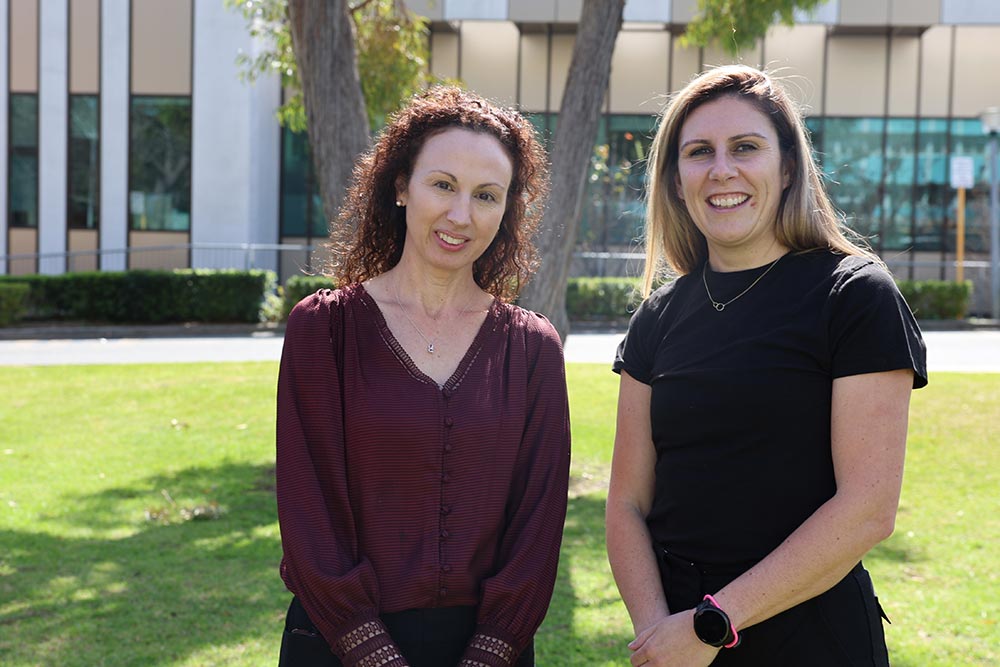Improving outcomes for older adults in Emergency Department
 Kristie Harper and Melinda Williamson
Kristie Harper and Melinda Williamson
Senior Occupational Therapist and PhD student Melinda Williamson is conducting a research project focused on improving the health outcomes for frail older adults at Sir Charles Gairdner Hospital (SCGH).
The project, conducted by Melinda after she was awarded a clinician research training scholarships last year, looks at the before and after effects of introducing early Emergency Department (ED) Allied Health Services for frail older adults.
Melinda said those living with frailty were at greater risk of adverse events when attending the ED, including deconditioning, falls, delirium, pressure injuries and mortality.
“I am attempting the improve the care older adults receive when they present to hospital and help people get the care they need closer to home, where they want to be,” she said.
Frailty prevalence in Australian older adults aged above 65 years old is estimated to be 21 per cent, with a further 48 per cent considered pre-frail.
Research findings showed that at SCGH approximately 35 per cent of ED presentations are from adults aged above 65 years, and therefore at risk of frailty.
Melinda said frailty screening and a comprehensive geriatric assessment within one-hour of admission is recommended.
“This assessment is time consuming and difficult to complete routinely in the ED setting due to increasing demand” she said.
“The aim of this project is to implement an early Allied Health Service in ED and report on the impact this has on frailty care and health system outcomes.”
The project will provide individualised interventions to priority patients, minimise the risk of adverse events and gather valuable information regarding social complexities and function earlier to assist discharge decision making, facilitating patient flow through the ED and improving patient outcomes and experience.
Data collection aims to start in October with the implementation of an early allied health intervention service starting in 2025.
The research project is conducted under the guidance of SCGH Research Coordinator, Occupational Therapy, Associate Professor Kristie Harper.

